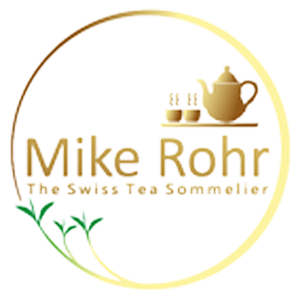Tea Health
Swiss food and health regulations draw a clear line between food and medicinal products. Thus, it is illegal in Switzerland to promote sales through any tea health benefits that may exist.
Throughout the world, there is though great agreement that tea has positive effects on body and mind. (One of the myths how tea was discovered relates to Chinese emperor Shennong, who had a special interest in the medicinal use of plants, among them the leaves of Camellia Sinensis that happened to drop into his hot water 2737BC. Thus, it has been while that humans have been experimenting with tea). However, it is immensely difficult and often downright impossible to prove the particular effects of particular substances contained in tea in a scientifically acceptable way.
Furthermore, experience shows the scientific view of food in general varies greatly over time [Limitless amounts of artificial vitamins did not appear problematic in the 70’s; now, hyper-vitaminosis of certain vitamins is considered a problem]. To add insult to injury, individual studies may contradict each other as they have a different focus. [Fish is good for you because of the high omega-3-fat content; fish is bad for you because of the plastic the animal has eaten and built into its body]. As a consequence, many people grew up believing, for example, that drinking milk was good for the build of their bones, but some newer studies appear to suggest a contrary effect. The remarkable result of this is that the old wisdom of once is at this very time possibly turning into a myth and advertising that used to be permitted can no longer be shown.
While many tea health claims cannot be verified, or may have been proven to be untrue, or the respective substances in tea liquid do not occur in large enough amounts to make a difference when ingested, or may not be absorbed by the body in large enough quantities, here are two short overviews of how various kinds of tea might help (followed by a more comprehensive overview towards the end of this page):
What’s the Buzz about Green Tea ? (Click here)
Health Benefits of Teas and Tisanes (Click here)
[Warning, when you leave this site, you will return to a world in which teas and non-teas (i.e. infusions / tisanes) are often confused. Some teas can even lead to pregnancy, according to Insider (Really ? Is this a pun on purpose ?), but the culprits raspberry leaf and strawberry leaf tea are in fact not tea. Also, as a rule of thumb, (real) tea contains about half the amount of caffeine found in coffee, and thus may constitute an excellent switch before, during and after pregnancy).
While the jury is not out yet on whether tea helps fight cancer with weight loss make strong teeth because of its high anti-oxidant content against heart disease prevent strokes reduce the risk of neurological diseases with its fluoride content against tooth decay to protect lung damage maintain normal blood pressure make breathing easier for asthmatic patients reduce cholesterol fight plaque bacteria prevent bacterial infection lose weight keep blood sugar levels in line helps reduce cramps keep artherosclerosis in check digest food remove toxins from blood circulation or not,
there has been quite some research into the old adage that the consumption of fondue demands the simultaneous drinking of tea:
If the above has wet your appetite for fondue, you may want to try one of the following links for a simple recipe by Anna Margaretha Kitt / Gessner Kit:



